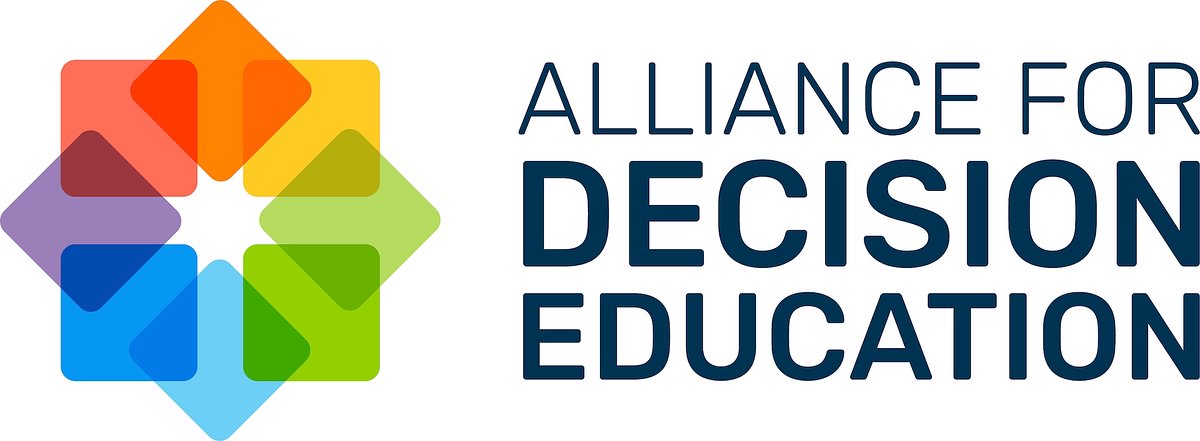
Beyond Rote Learning: $1M Boost for 'Decision Education' Aims to Equip Students for Real Life
A $1 million grant is fueling research into 'Decision Education,' a growing field focused on equipping students with critical thinking and problem-solving skills vital for success in a rapidly changing world.
Beyond Rote Learning: $1M Boost for 'Decision Education' Aims to Equip Students for Real Life
By Helen Davis
A $1 million investment from the Alliance for Decision Education is poised to reshape how students are prepared for the complexities of modern life. The grant, distributed to six leading research institutions, underscores a growing recognition that traditional education, focused largely on memorization and standardized testing, falls short in cultivating the critical thinking, problem-solving, and decision-making skills essential for navigating a rapidly evolving world.
This isn't just about adding another subject to the curriculum; it’s a fundamental shift in how we educate. The funded research explores innovative methods to integrate “Decision Education” across all disciplines, from STEM to humanities, aiming to empower students to analyze information, assess risks, and make informed choices – skills increasingly vital for both personal and professional success.
The Rising Tide of 'Decision Literacy'
The grant recipients – including Harvard University, the University of Michigan, and the Technical University of Munich – represent a diverse range of expertise in educational psychology, behavioral economics, and cognitive science. Their projects tackle different facets of Decision Education, from developing AI-assisted learning tools to creating new assessment methods for measuring decision-making aptitude.
“We’re seeing a clear demand from employers for candidates who can think critically and solve complex problems,” explains a researcher at the University of Michigan, who asked to remain anonymous. “Traditional education often prioritizes what students know over how they think. This grant allows us to focus on developing those crucial ‘how’ skills.”
The impetus for this increased focus on decision-making isn't solely driven by employer demands. A recent report by the World Economic Forum highlights that 54% of all employees will require significant reskilling by 2025, with critical thinking and problem-solving consistently ranked among the top skills needed. Furthermore, data from the National Assessment of Educational Progress (NAEP) reveal that only a quarter of high school seniors demonstrate proficiency in critical thinking, signaling a significant gap in preparedness.
From AI to Real-World Application
The funded projects showcase a multifaceted approach to Decision Education. At Harvard University, researchers are developing AI-powered learning tools designed to personalize instruction and adapt to individual student needs. These tools aim to provide targeted support in areas where students struggle with decision-making, such as identifying biases or evaluating evidence.
Meanwhile, at the University of Michigan, the focus is on integrating scientific reasoning into the curriculum. “We want students to understand the principles of logical thinking and apply them to real-world problems,” says a researcher involved in the project. “This involves teaching them how to formulate hypotheses, collect data, and draw valid conclusions.”
The Technical University of Munich is taking a different tack, concentrating on the intersection of financial literacy and decision-making. Their research explores how to equip students with the knowledge and skills they need to make sound financial choices, from budgeting and investing to managing debt.
However, the ultimate goal is not simply to impart knowledge, but to foster a deeper understanding of the decision-making process itself. “It’s not enough to tell students what to do,” explains a researcher at Indiana University of Pennsylvania, who is developing new assessment tools. “We need to help them understand why certain decisions are more effective than others, and how to apply those principles in different contexts.”
Beyond the Classroom: Bridging the Skills Gap
The implications of this research extend far beyond the classroom. As the pace of technological change accelerates and the nature of work evolves, the ability to think critically and solve complex problems will become even more essential for success.
A recent survey by the National Education Association (NEA) found that 78% of educators believe students need more training in decision-making skills, and 65% report that current curricula do not adequately address these needs. This gap highlights the urgent need for innovative approaches to education that prioritize the development of these crucial skills.
“We need to move beyond rote learning and embrace a more holistic approach to education that prepares students for the challenges of the 21st century,” argues a researcher involved in the Lander University project, which focuses on applying decision-making skills in real-world scenarios. “This requires a fundamental shift in how we think about teaching and learning.”
Furthermore, Decision Education isn't just about preparing students for future careers. It’s also about empowering them to make informed choices about their lives, from health and finances to civic engagement and social responsibility.
“In a world awash in information, it’s more important than ever to be able to critically evaluate sources, identify biases, and make sound judgments,” explains a researcher at the University of Michigan. “Decision Education is about equipping students with the tools they need to navigate the complexities of modern life and make informed choices that align with their values.”
The $1 million investment from the Alliance for Decision Education represents a significant step towards closing the skills gap and preparing students for a future that demands critical thinking, problem-solving, and informed decision-making. It's a recognition that education isn't just about imparting knowledge, but about empowering students to become lifelong learners and responsible citizens.
